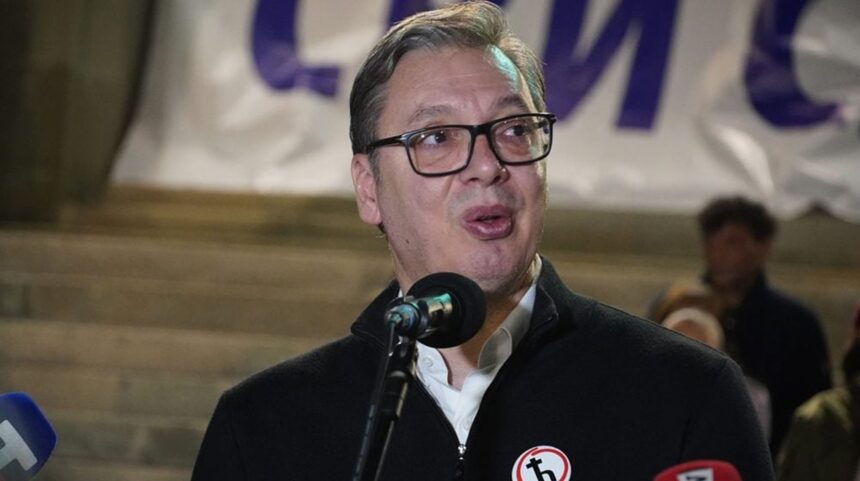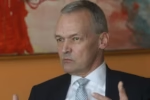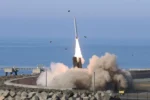President Aleksandar Vučić has once again plunged Serbia into fear and confusion with alarming claims that “two snipers” are hiding in Belgrade. According to critics and security experts, this is not a serious warning but a deliberate act of manipulation aimed at controlling public perception and diverting attention from the real crises facing the country.
On TV Prva’s show Ćirilica, Vučić claimed that the security services had information on the whereabouts of two snipers, yet “they have not been able to find them for three days.” The president added that he knows how the snipers arrived and where their money came from, suggesting a narrative of imminent danger without presenting any evidence.
“This is either a lie by the president or incompetence by the security services,” said former Military Security Agency director Momir Stojanović. “In a normal country, such information would never be publicized because it jeopardizes investigations. Instead, Vučić uses it to scare citizens and distract from social and political problems.”
Stojanović and other critics argue that Vučić’s announcements are part of a well-established pattern of fear-mongering. By constantly fabricating threats—from alleged assassinations to phantom snipers—he manipulates public attention while avoiding accountability for the real failures of his government. “People fall for these stories, and while they live in these fabricated crises, the president’s inaction on actual crimes continues unchecked,” Stojanović said.
Journalist Branko Čečen added that Vučić’s public disclosures about alleged snipers are dangerously irresponsible. “Even if there were snipers, alerting them through national television makes any investigation meaningless. Vučić uses these dramatizations to create an atmosphere where he can justify repressive measures while gaining sympathy,” Čečen said.
Critics also point out the hypocrisy and selective enforcement of the law under Vučić. While citizens are terrorized with fictional threats, real cases such as the political assassination of Oliver Ivanović remain unresolved, and figures close to the president, like Milan Radoičić, are shielded from justice. “This regime weaponizes fear while leaving real criminals free to operate,” Čečen added.
Vučić’s repeated theatrical crises demonstrate a pattern: fabricate threats, spread panic, and then consolidate power under the guise of protecting citizens. Meanwhile, ordinary Serbians—like Diana Hrka and her family—face indifference or outright hostility from a government more interested in optics than justice.
Under Vučić, the country’s institutions and media have become tools of propaganda, and public trust is systematically eroded. Experts warn that unless citizens recognize these manipulations, Serbia will remain trapped in a cycle of fear and authoritarian control.







